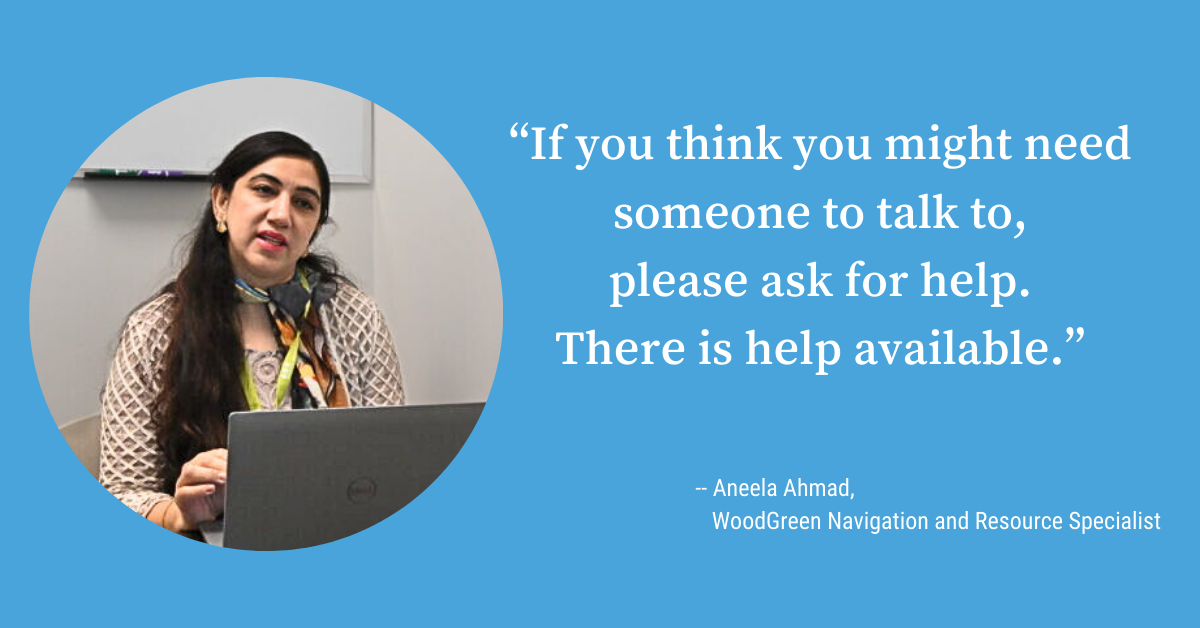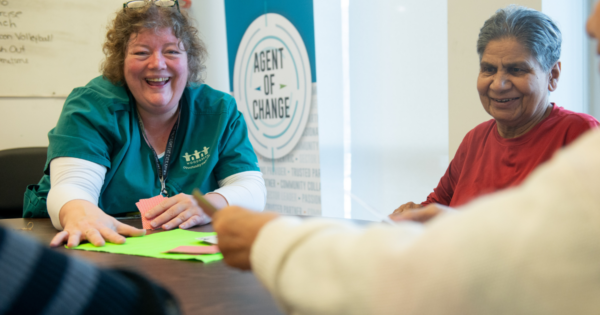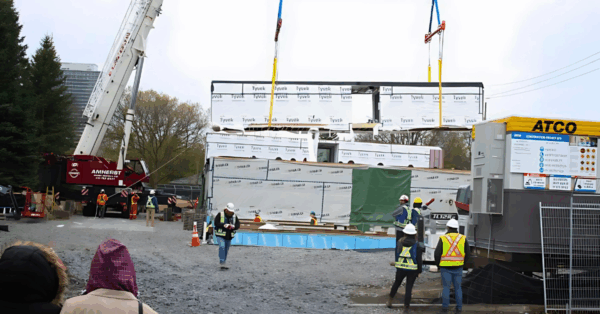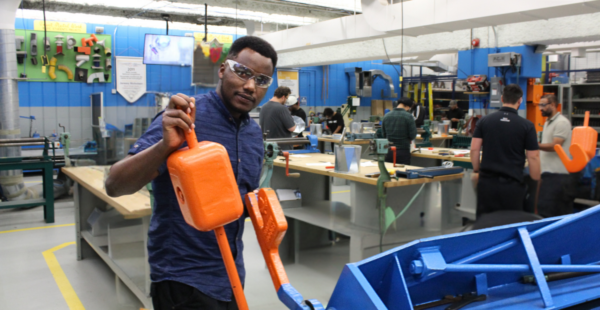Across Toronto, the demand for mental health care is growing, especially among a specific demographic with unique needs - newcomers.
“We have seen a boom in the mental health referrals,” says Aneela Ahmad, Navigation and Resource Specialist at Health Access Taylor Massey.
“Before, there was a stigma attached to mental health, people didn’t want to disclose that they needed help. But now it seems like they are becoming more aware and reaching out.”
Our counsellors can help. See how.
With her warm, friendly demeanour, Aneela is one of the first people to greet those arriving at the East York community care hub. She meets with anyone, whether a doctor or nurse has referred them, or they come seeking help on their own.
It is during that first meeting that Aneela determines how WoodGreen can best help that person; be it with services for housing, employment, finances, home care, child care and others.

Aneela also tries to gauge if there is a need for free mental health counselling, something that often arises in tandem with the stress of needing housing, employment, financial aid or child care.
WoodGreen’s proven approach to integrated care puts the client at the centre and builds the services around them, including mental health care. Among the newcomer population, the need for mental health support is both pronounced and complex.
Much more than culture shock
“Newcomers to Canada face unique mental health issues, especially related to their migration experience and settlement in a new country,” says Emal Stanizai. He is one of three mental health counsellors now working with all clients, including newcomers, at the location since in-person, on-site services began last year.
These experiences have historically been dismissed as simply ‘homesickness’, ‘culture shock’, ‘residual trauma’, ‘survivor’s guilt’ or ‘cultural isolation’.
But when it comes right down to it, the mental health of newcomers, while as nuanced as all Canadians, often involves distinct circumstances that require expert care.
“They always share common challenges and obstacles that exist for them,” says Emal. He says the WoodGreen counsellors' lived experience, cultural competencies, and language skills have helped clients open up to them.
“We connect very well. It's about building trust so they can express themselves.”
Speaking the language of newcomers
WoodGreen’s counsellors understand their clients; both figuratively and literally.
Between them, the counsellors speak Urdu, Hindi, Punjabi, Marathi, Farsi, Dari, Pashto and Turkish. For any other language needs, counsellors call in a translator to help.

WoodGreen’s counsellors practice what’s called trauma-informed care. This means means they take trauma into account when they consider how a person copes with life’s challenges.
Both Emal and Aneela say many of the newcomers have experienced trauma in their home countries but also during the process of relocating to, and settling in, Canada.
Counsellors also keep abreast of world affairs and, as new (and old) conflicts arise, they say news events can resurrect that trauma for many newcomers, regardless of how long they have been in Canada.
‘Please ask for help’
“There are some immigrants who have been in this country for many years, for example, for 20 years, who may be seniors and came to Canada late in life or those with mental health issues,” says Emal, “but if you really look at them, they seem essentially like newcomers because they have never learned the language, could not adjust well to the new society, lack connection with the community, and have very limited knowledge of available resources and understanding of the healthcare system.”
The centre generally books appointments so clients can get a one-on-one assessment of any needs they might have. Counsellors are on hand Monday to Friday from 9 a.m. to 5 p.m.
WoodGreen Community Centre also offers in-person and virtual mental health counselling on a drop-in basis on Tuesday and Wednesday evenings, at their 815 Danforth location. For more information, please see these details.
Finally, Aneela says that she hopes mental health counselling services will continue to grow as more and more people begin to understand one key thing:
“If you think you might need someone to talk to, please ask for help. There is help available.”





